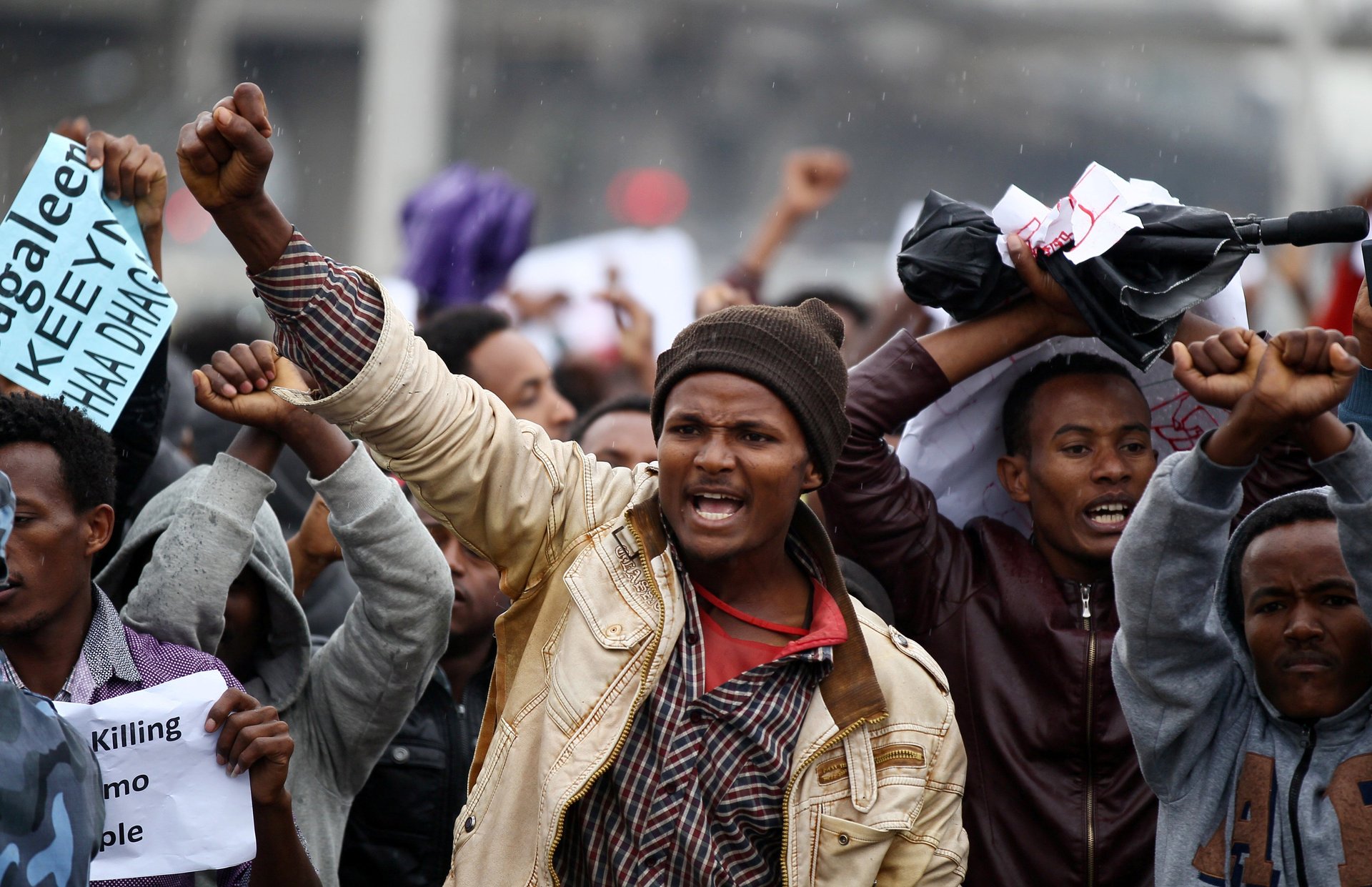Ethiopia’s political protests are escalating with a fire at a major prison
Tensions in Ethiopia escalated over the weekend when 23 people were killed after a fire erupted at the Qilinto prison in the outskirts of the capital, Addis Ababa. The jail reportedly holds high political prisoners, some of them from the Oromo community, who have been protesting against the government for almost a year now.


Tensions in Ethiopia escalated over the weekend when 23 people were killed after a fire erupted at the Qilinto prison in the outskirts of the capital, Addis Ababa. The jail reportedly holds high political prisoners, some of them from the Oromo community, who have been protesting against the government for almost a year now.
Citing a government statement, the state-controlled Fana Broadcasting Corporate said that 21 inmates died from stampede and suffocation, while two others were killed trying to escape the prison. The blaze also damaged two buildings as well as recreational facilities used by the prisoners. Local media outlets however disputed the account, citing eyewitnesses who said that armed prison guards “indiscriminately” shot at prisoners, and put the death toll at 20. Family members say they are yet to receive information on their loved ones who were in the prison.
The fire comes at a time when the Oromo and the Amhara, the country’s two largest ethnic groups, are protesting against the Tigray-dominated government. The demonstrations have been going on since last November, with protestors calling for wider economic, political and social freedoms. Human rights organizations estimate that more than 500 peaceful protestors have been killed since then by security forces.
The violence has also affected businesses, with the burning of flower farms and foreign commercial properties worth millions of dollars. Land reform is one of the demands of the protestors, and government-sanctioned foreign projects face a high risk of attacks, says Emma Gordon, senior Africa analyst at global risk consultancy, Verisk Maplecroft.
“This is most likely to affect agribusiness investments, which are concentrated in Oromia region due to its status as Ethiopia’s most fertile region,” Gordon says. “If further attacks on foreign assets occur and more companies seek to divest, it will most likely force the government to reconsider its approach to the protests.”
The unrest is gradually gaining global attention, with the United States government and the African Union commission both expressing concern. Samantha Power, the US ambassador to the UN, called the violence in the country “extremely serious,” and called for an independent investigation into the protests while on a trip to South Sudan on Sunday (Sept. 4). Eleven months since the protests started, the AU in early September also called for restraint and dialogue among all stakeholders.